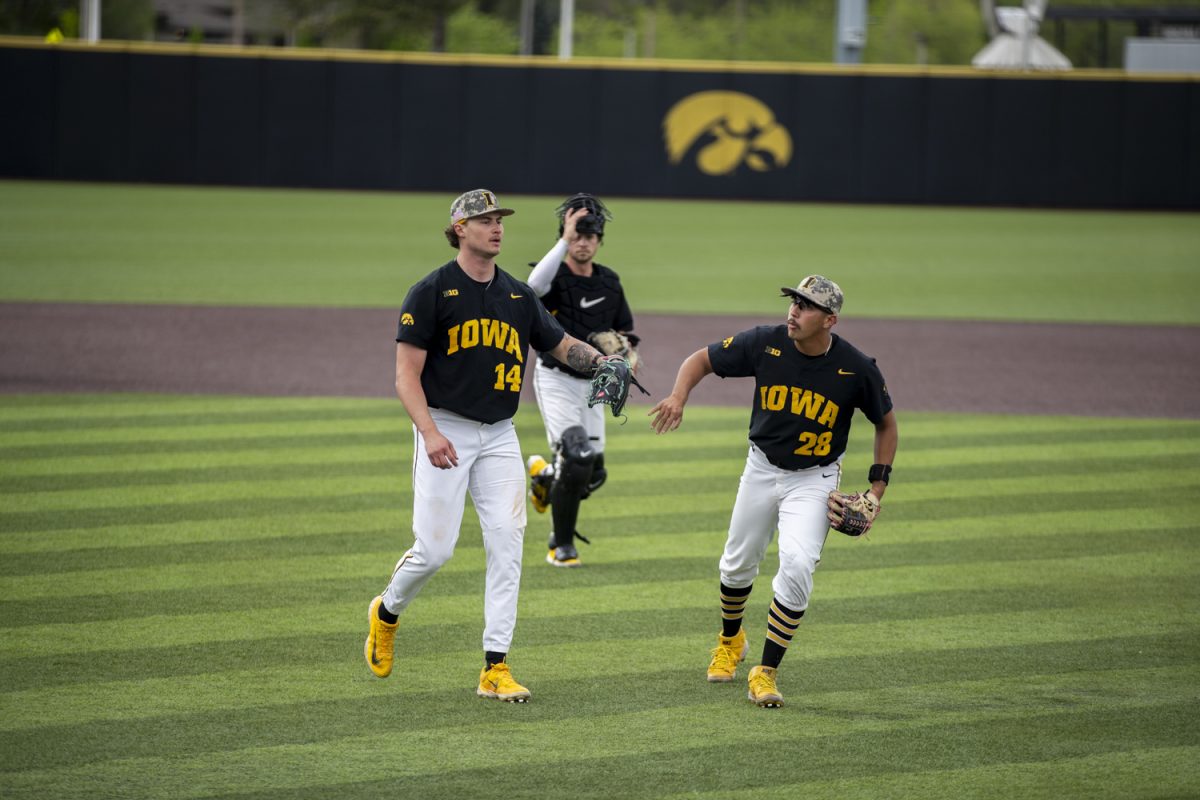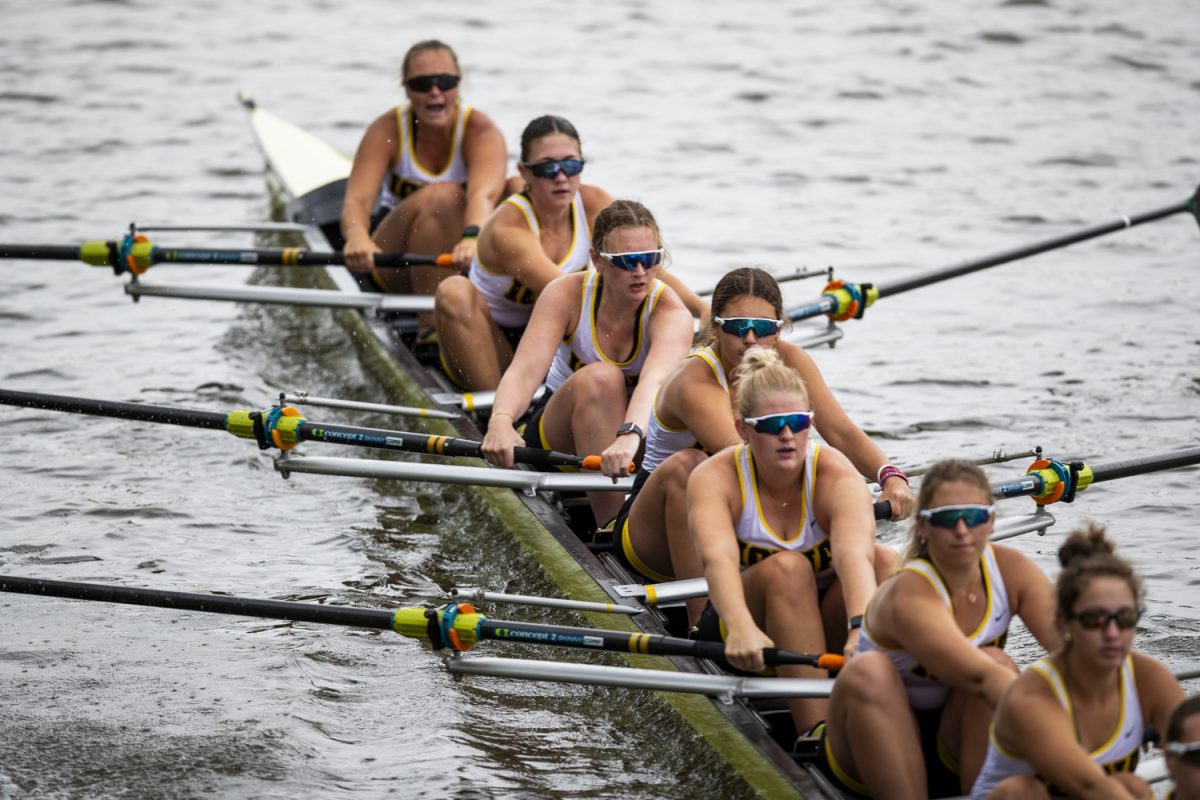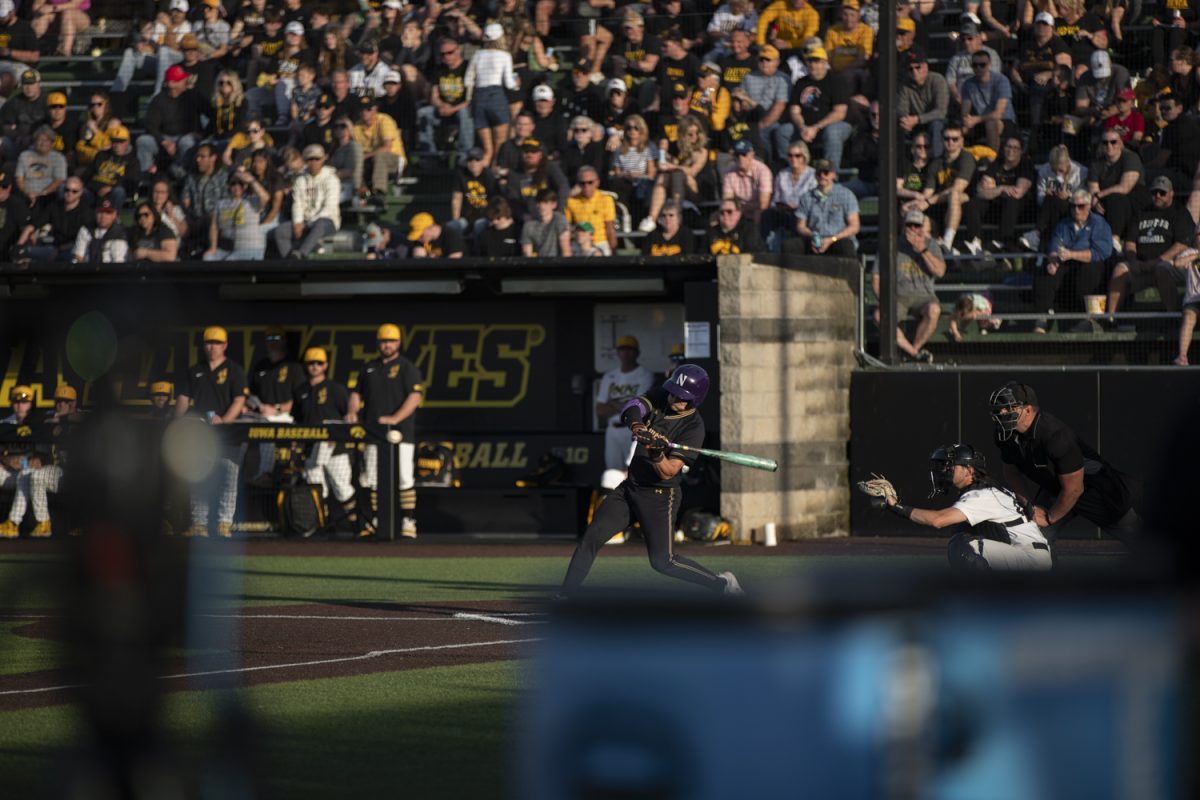There is no high-school field hockey in the state of Iowa.
No sticks. No striking circles. No penalty corners.
Still, the Iowa team has cemented itself as a national power in the sport.
With no in-state talent to recruit, the Hawkeyes must annually scour the national map, searching for the best prospects. Unlike power programs with better locations, Iowa leaps a geographic hurdle each year.
But the Hawkeyes regularly ink women from the East, where there is a rich field-hockey tradition.
And it’s no different with this year’s club.
Of the 16 players on Iowa’s current roster, none come from Iowa, or even a bordering state. Six hail from Delaware, Maine, New Jersey, and North Carolina. Another six are products of Pennsylvania, a state Iowa head coach Tracey Griesbaum knows plenty about. Now in her 10th year at the helm of the program, she is a native of Newtown, Pa.
She was also former Iowa head coach Beth Beglin’s first recruit at West Chester University, where her 107 career points still top the Golden Rams’ record book. Griesbaum’s success helped earn her a selection into the school’s Athletics Hall of Fame in February.
Her first coaching gig kept her in the East; she served as LaSalle’s head coach in Philadelphia from 1990-91.
Her first Midwest tenure occurred in 1992, when she was hired as an assistant at Iowa by — you guessed it — Beglin. Griesbaum later took the reins when Beglin resigned prior to the 2000 season.
Fast-forward to the present, and Griesbaum has maintained Iowa as a field-hockey powerhouse, following in Beglin’s footsteps. Regardless of the sport, you can’t reach “perennial power” prominence in collegiate athletics without solid recruiting.
So how exactly do the Hawkeyes do it?
“Everything that we do, we try to do with a kind of pride behind it,” Griesbaum said. “We feel if we can continue to build relationships with a prospect, and her parents, and her family, and we can get her out here on campus, nine times out of 10, Iowa moves up on her list [of schools]. It really blows her away when she gets out here.”
Often, Griesbaum said, prospects don’t have high expectations for what Iowa offers in terms of facilities, academics, and campus life. That’s why getting potential Hawkeyes to Iowa City is crucial.
And it’s proven to be a successful strategy.
Easterners such as Caroline Blaum and Lauren Pfeiffer, both of whom now work under Griesbaum as assistants and play for the U.S. National Team, led Iowa to a Final Four run last year.
Blaum had many reasons for becoming a Hawkeye.
“It was the tradition — the pride of the team,” she said. “I wanted to be a part of Big Ten hockey. I had a lot of aspirations coming out of high school. I wanted to be on the U.S. team. I wanted to work toward that. But I also wanted to work toward a national championship, and I saw that in Iowa’s future. I committed to that wholeheartedly, so it didn’t make any difference that it was like 900 miles away.”
Players such as Blaum have helped develop a rich Hawkeye field-hockey tradition. Griesbaum tries to embrace that tradition, but she doesn’t rely on it solely, she said.
“I don’t think we’re stuck in the past at all,” she said. “We have a really good way of not forgetting what came before us at Iowa but also staying up with the times and making sure that we’re recruiting the best talent out there. We will conform slightly to what we feel the needs of the prospects and the needs of the team are. In the same sense, we’re not going to change 180 degrees just to lure this top kid in the country. We are who we are.
“We don’t really change. They come. They visit. We get to know them. We evaluate them. Toward the end of the process, if it’s not a good fit, it’s just not a good fit.”
Senior Tricia Dean is an example of a “good fit” for the Hawkeye program. Dean, a native of Bear, Del., leads Iowa in assists this season (six) and is tied for second in goals (six).
Fortunately for her, the distance between her family and Iowa City wasn’t a problem for her parents.
“My parents were always open to taking me wherever I wanted to go,” Dean said. “If I wanted to look at Stanford on the West Coast, they would have gone there.”
Aside from the coaching staff and facilities, aspects that typically appeal to most prospects, small roster size swayed her.
“The smaller team was definitely a big appeal,” Dean said. “We’re closer. We have a lot more touches on the ball. I can improve my game the most here.”
Whatever the reason, she said, she felt she ended up where she was supposed to — as a Hawkeye.
Nonetheless, she said, “it’s not magical.”
The Hawkeyes have to work laboriously to get top-flight players. With around 1,000 miles separating Iowa and the deepest pool of potential field-hockey stars, she and her staff are forced to trudge a bit more on the recruiting path than coaches from Eastern schools.
But Griesbaum doesn’t foresee a shortage of athletes interested in her program.
Of course, it does take a big commitment for family members to pay for a trip to Iowa City on an unofficial visit. And with the way recruiting has evolved, Griesbaum said, parental involvement is one of the many things that have changed during the process.
“It’s almost like their parents are their agents a little bit,” Griesbaum said. “They work the system pretty aggressively.
“I don’t think it’s maybe as pure as it was. Obviously, the programs are now trying to attract the younger players with a lot more of the modern things.”
When Griesbaum played at West Chester, all teams played on grass.
No program had an elaborate locker room. Most didn’t even have a full-time scoreboard.
But times have changed. Iowa has an Astroturf playing surface and some of the best facilities in the country.
Still, Griesbaum doesn’t particularly like “the more the better” philosophy that modern-day collegiate recruiting has adopted.
“Unfortunately, it’s just the way it is,” she said. “I’m not a big fan of it, but you have to work within it, or else you won’t be successful.”
Despite the changing times, Griesbaum and her staff don’t lose sleep over a recruit choosing against Iowa City. The Iowa coaches put in most of their hard work during the beginning and middle stages of the recruiting process. At the end, Griesbaum knows, it’s up to the recruit.
“If someone is ready to make a decision, we don’t feel like there’s anything else we could have done,” she said. “We don’t feel like it’s because we didn’t do enough work, or we need to do something different. It’s just she decided, for whatever reason, not to come to Iowa. There have been players who have come to Iowa not even expecting to be impressed, and they end up being Hawkeyes a month later. What we do and what we stand for is really powerful.”






